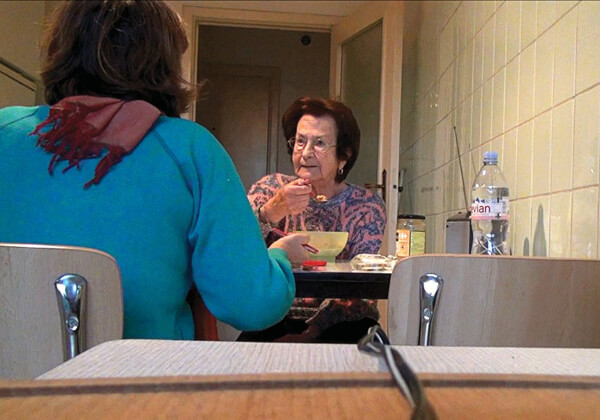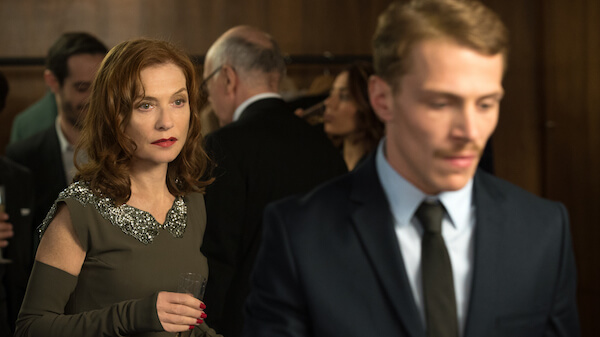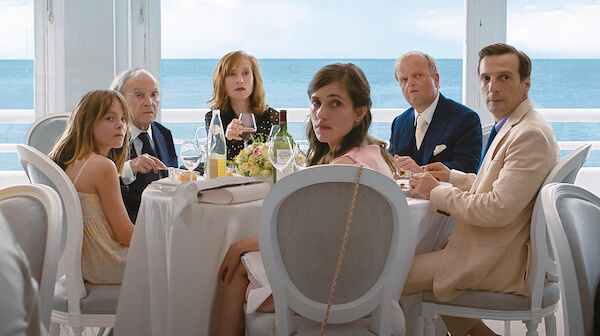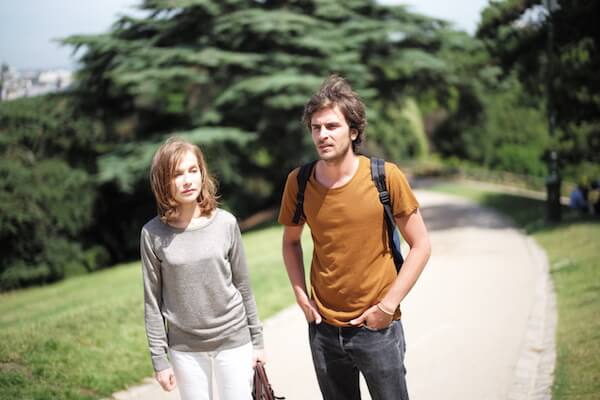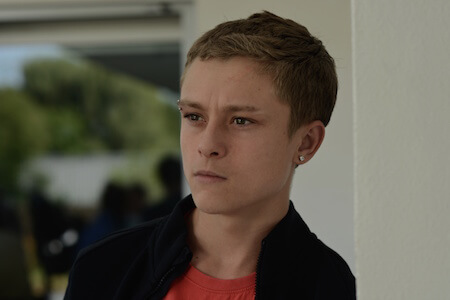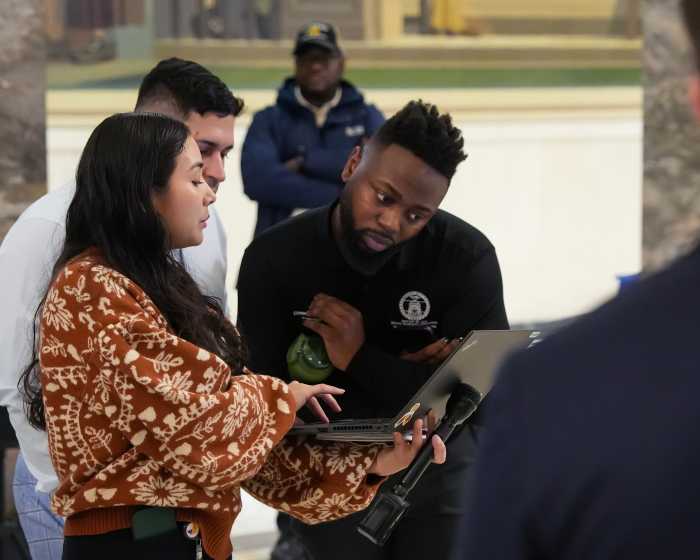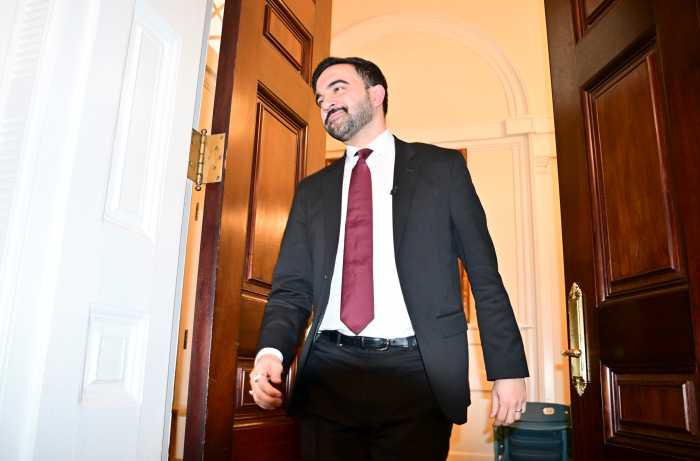Alex Hibbert and Mahershala Ali in Barry Jenkins’ “Moonlight,” based on a play by Tarell Alvin McCraney. | A24
“Moonlight” director Barry Jenkins has said that if people don’t have images of themselves, they’ll start to feel like they don’t exist. Jenkins’ film has given an unprecedented amount of visibility to gay African-American men –– at least in cinema. (TV shows like “The Wire” and “Empire” have beaten him to the punch.) This visibility is undeniably positive, but where do we go from here?
2016 was a terrific year for films by women and people of color. Can we work from this outstanding moment toward an American film culture that has room for blockbusters, a genuinely diverse independent sector, and regular releases of subtitled films from around the world? If Hollywood opens up to the point of hiring women and people of color to do nothing but direct superhero films and “Star Wars” sequels, it may be a pyrrhic victory.
Of course, employing a more diverse set of filmmakers is a worthy goal in and of itself, but it won’t automatically lead to a more subversive group of films. Does anyone remember the controversy over Kathryn Bigelow’s “Zero Dark Thirty?” Did anyone see “Fifty Shades of Grey,” erotica made by and for women that managed to be more sexist than most softcore porn aimed at dudebros?
2016 offered glimpse of what a more diverse world of filmmakers could mean
When Pauline Kael sang the praises of “trash” over Oscar-bait in 1969, I doubt she could have imagined a future in which most Hollywood genre films cost $150 to $200 million and need to gross $500 million worldwide to break even while the independently made “Spotlight” wins the Best Picture Oscar. Hollywood can’t be bothered to make realistic films about gay life, but the “X-Men” series has staged an elaborate allegory about the struggle for LGBT rights. Do people still have images of themselves if their on-screen alter egos’ skin is blue and they have superpowers?
My lists of 2016’s best, the runners-up, the undeservedly ignored, and the worst follow:
1.“Toni Erdmann” (Maren Ade)
Reviewed in this issue here.
2. “Moonlight” (Barry Jenkins)
The pitfalls of American masculinity, summed up in three precise sections: fear of difference, a tendency to resort to violence (especially when faced with gayness), and emotional repression coupled with swaggering machismo. Given the drug-war timing, Jenkins’ subject matter screams “realism,” but his direction is dreamlike and trippy.
Natalia ‘Nelly’ Akerman in daughter Chantal Akerman’s film “No Home Movie.” | ICARUS FILMS
3. “No Home Movie” (Chantal Akerman)
The late bisexual Belgian filmmaker gazed into the void left by her mother’s death and couldn’t go on living. None of this is stated explicitly in her documentary “No Home Movie,” which chronicles her mother’s last few years, but the film finds eloquent visual metaphors for grief and emotional darkness.
4. “‘Til Madness Do Us Part” (Wang Bing)
A four-hour Chinese documentary about a mental hospital for the involuntarily committed is lucky to get a week-long run in New York, as Wang’s film did. Recalling the spirit of Frederick Wiseman, it goes for intensity over pretty pictures and gives a vivid X-ray of the repressive nature of contemporary Chinese society, where mental patients are fed drugs and given nothing to do all day.
5. “Right Now, Wrong Then” (Hong Sang-soo)
With a consistency that would impress the Ramones, Korean director Hong has made his umpteenth variation on his favorite subjects –– soju liquor, filmmakers, young women –– told in an elaborately playful narrative. Hong’s films sometimes resemble Woody Allen’s, filtered through the French New Wave, but they’re not mere male fantasies: the guy usually don’t get the girl.
Kim Min-hee and Jung Jae-young in Hong Sang-soo’s “Right Now, Wrong Then.” | GRASSHOPPER FILM
6. “Certain Women” (Kelly Reichardt)
Evoking writers like Raymond Carver and Alice Munro (while actually adapting Maile Meloy), Reichardt’s trio of interlocking stories set in Montana evoke the mysteries of human behavior with a respect for our species’ foibles. The film peaks in its final third, a tale of obsession between Lily Gladstone and Kristen Stewart that can be read as erotic, friendly, needy, or just plain weird.
7. “Elle” (Paul Verhoeven)
Just as America elected a sexual predator-in-chief, Verhoeven and (most crucially) Isabelle Huppert offered up a brutal, misanthropic, and darkly funny kick to the balls of rape culture. Without Huppert, this film might have seemed like a fantasy of female invulnerability; with her performance (the best turn by an actress I saw this year), its rape survivor escapes the usual clichés about victimization or female strength while also refusing the mantle of nobility.
Isabelle Huppert in Paul Verhoeven's “Elle.” | SONY PICTURES CLASSICS
8. “Things to Come” (Mia Hansen-Løve) Isabelle Huppert served up her other great performance of the year in Hansen-Løve’s much gentler showcase for her talents. This is the kind of film about the dilemmas of being a single middle-aged woman that doesn’t get made in Hollywood, and Huppert excels in its dramatic but relatively subdued ups and downs.
9. “I Am Not Your Negro” (Raoul Peck)
Based on gay African-American author James Baldwin’s words, both published and unpublished, Haitian director Peck’s film amounts to an anguished, extremely powerful history of America from the ‘50s to the present, as we see Baldwin struggling to find reasons to remain optimistic as the country goes on killing black men. Peck’s montage of movie scenes, photos, TV footage, and newly shot images is potent, but the film’s real force comes from Baldwin’s words.
10. “The Mermaid” (Stephen Chow)
The best “Hollywood”-style entertainment of the year actually came from China. Veteran Hong Kong-based actor/ director’s worldwide success –– which barely got released in the US –– created a raucous comedy about a community of mermaids in danger of being destroyed. For the most part, this is an extremely silly, enjoyable ride, but Chow isn’t afraid to get ugly and violent when he needs to.
Runners-up: “10 Cloverfield Lane” (Dan Trachtenberg), “13th” (Ava DuVernay), “Arrival” (Denis Villeneuve), “The Handmaiden” (Park Chan-wook), “Little Men” (Ira Sachs), “The Lobster” (Yorgos Lanthimos), “Neither Heaven Nor Earth’ (Clément Cogitore), “Notfilm” (Ross Lipman), “Pervert Park” (Frida and Lasse Barkors), “The Witness” (James Solomon).
Undistributed films that deserved a shot at American theaters : “Dead Slow Ahead” (Mauro Herce), “Like Cattle Towards Glow” (Dennis Cooper and Zac Farley), “Malgré la nuit” (Philippe Grandrieux), “El Movimiento” (Benjamin Naishtat), “My Entire High School Sinking Into the Sea” (Dash Shaw).
Bottom 5: “Author: The JT Leroy Story” (Jeff Feuerzeig), “Captain Fantastic” (Matt Ross), “The Club” and “Jackie” (Pablo Larrain), “Nocturnal Animals” (Tom Ford).



